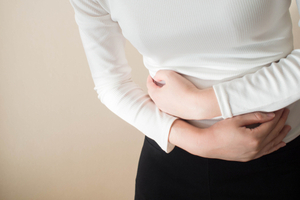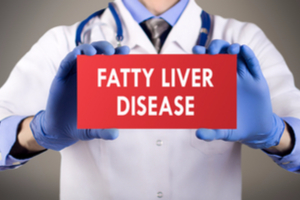Could Kidney Stones Be Causing Your Pain?
Kidney Stones are an accumulation of minerals and salt from your urine that form into what looks like small stones or pebbles, hence the name Kidney Stones. These stones can be smooth, round, jagged, and as big as golf balls! Men are more likely than women to experience kidney stones, especially men 40 years and older. Women see their chances for kidney stones increase after 50.

The main job of the kidney is to filter out the waste present in our blood; this waste is the bodies’ literal garbage, and is removed through our urine. As garbage and useful particles are picked apart, an excess of salts and minerals start to float about and stick together, forming into little tightly packed balls. Floating around inside of your kidney, you’d likely never know it was there, but if a kidney stone is released through the narrow channels that lead to your bladder, it can be extremely painful. Learn More!
Common Signs Of Kidney Stones
- Having to urinate frequently
- Painful urination
- Presence of blood in urine
- Back, groin, or belly pain that persists and feels unusual, often described as a sharp pain
- Nausea and/or vomiting
Of course these symptoms can be signs of so many other ailments, often patients don’t even think about kidney stones when they start feeling pain. Other times, patients think they are having a kidney stone and it turns out to be something else altogether. Only your doctor will know what’s really going on, so while many stones will painfully pass on their own, a doctor is well worth visiting, especially if you have never had a kidney stone before. X-rays, a CT scan, urinalysis, or ultrasound can all be used to spot a kidney stone. In some instances, a blood test can also be telling, high levels of minerals in the blood can attribute to frequent instances of stones.
Treatment Options For Kidney Stones
Some stones are released into the urinary tract without any signs or symptoms. On the contrary, some stones are big enough to cause excessive pain, and others can be too big to pass on their own without medical assistance. 90% of kidney stones that are 5 mm or smaller pass on their own without medical attention, but larger stones (5 mm -10+ mm) require medical aid in order to pass more than 50% of the time. Kidney Stone Overview
In these more extreme cases, Extracorporeal Shock Wave Lithotripsy is a common treatment for kidney stones. The process can cause some pain, and even bruising or bleeding, but it effectively uses energy shock waves to break down large kidney stones into smaller pebbles, making it possible for them to pass. Along with muscle relaxers to help dull the pain, your Doctor can also prescribe an alpha-blocker type medication to relax ureter walls, allowing the stone to more easily free itself. Once your kidney stone has passed, your doctor can run tests on the actual stone to uncover the predominant chemical make up.
What Causes Kidney Stones?
The cause of your kidney stone is not the same as someone else’s; in fact, the entire chemical makeup of kidney stones can vary. 80% of kidney stones are made up of mostly calcium, along with smaller amounts of cysteine, struvite, and uric acid. Different chemical formations of stones indicate a different set of related causes, resulting in a different method of treatment and prevention. For instance, a largely struvite stone is often the after-effect of an already present infection in your kidney.
Once your doctor asks you a few questions, assesses your overall health, and uncovers the chemical background of your stone, they will be able to identify triggers that can help limit your chances for future kidney stones.
Common Causes of Kidney Stones:
- Certain medications
- Regular consumption of certain foods and beverages, including: chocolate, dark vegetables, meats and other high protein sources
- Too much sodium in your diet (The sodium content on frozen meals and other packaged foods is often through the roof!)
- Certain preexisting medical conditions, including high blood pressure, regular bladder infections, and gout, among others. By getting these conditions under control you can limit your chances for developing kidney stones.
Key Kidney Stone Information
Prevent Future Kidney Stones
Prevent future kidney stones by watching what you eat, increasing your health, and checking that all of the medications you take don’t list ‘kidney stones’ as a known side effect. Anything that affects the level of salts, water, and minerals within your urine can cause kidney stones to arise. Although the number one cause of kidney stones is dehydration, when we don’t drink enough water our body can’t properly flush out all of the necessary toxins, resulting in a higher likelihood of kidney stones. Drink as much water as you can everyday, especially if you already have a kidney stone to help wash it out through your urine faster.




